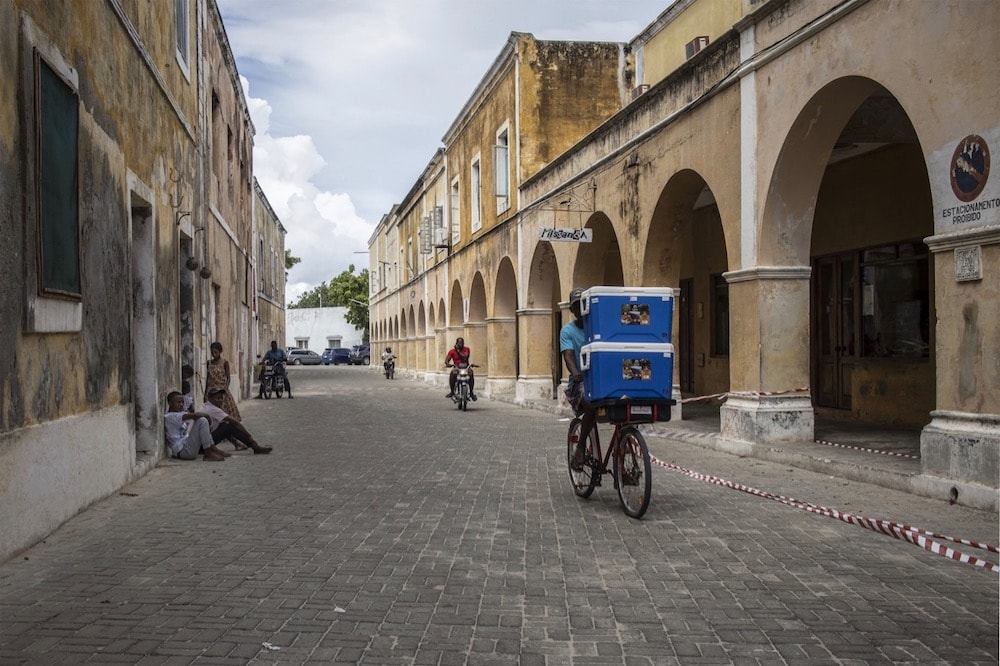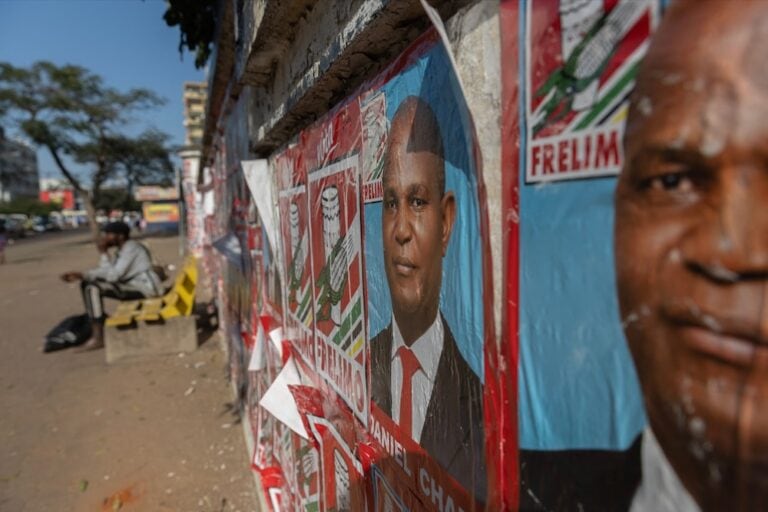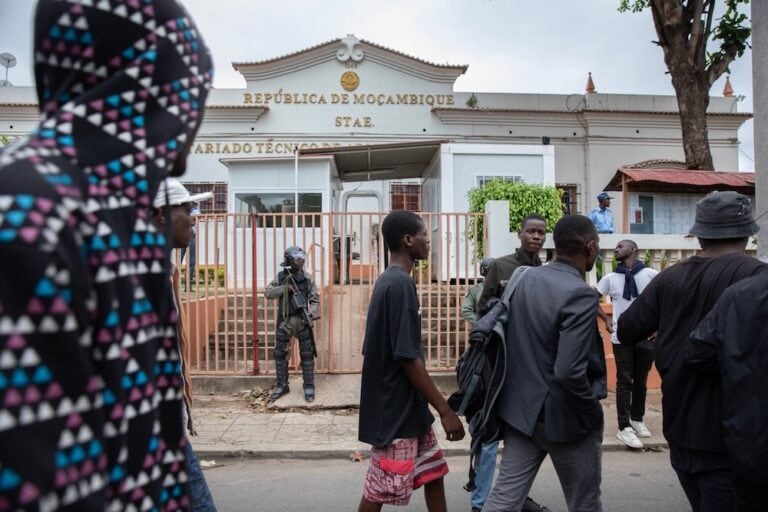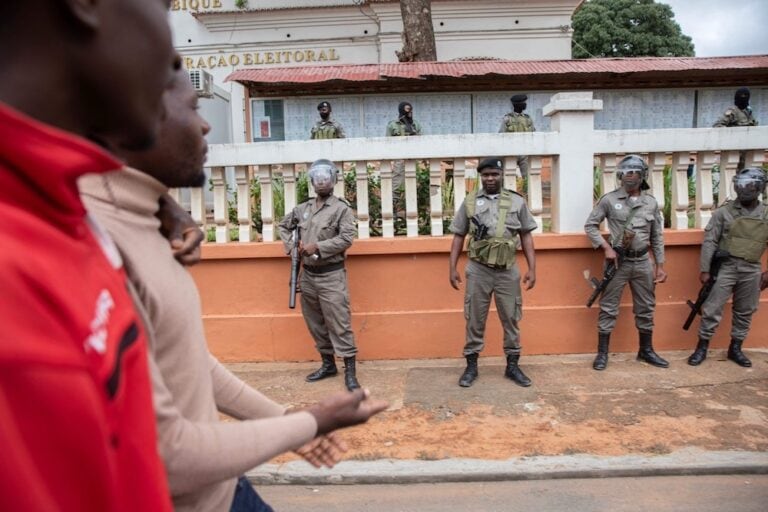Two TVM journalists told CPJ that they felt humiliated and were worried about their safety after some of the supporters present at the event started chanting “Get out” and that TVM was “rubbish.”
This statement was originally published on cpj.org on 24 July 2023.
On June 12, 2023, Paulo Vahanle, the mayor of the northern Mozambique city of Nampula, refused access to two reporters at a municipal event and accused a third of being a “spy,” according to media reports and the three journalists, who spoke to CPJ.
Vahanle, a member of the opposition Resistência Nacional Moçambicana (Renamo) party, which governs Nampula, asked every journalist who attended the event to identify their employer. When Elisa Fernando, a reporter with the local affiliate of the national state-owned broadcaster Televisão de Moçambique (TVM), and José Arlindo, a camera operator with the outlet, identified themselves, Vahanle refused to begin proceedings unless they left, Fernando told CPJ.
Fernando told CPJ that Vahanle accused TVM of not covering his Eid message marking the end of Ramadan and then “simply turned his back and left.” Fernando said she and Arlindo pleaded with the mayor’s spokesperson Nelson Carvalho to let them continue reporting but, after speaking with Vahanle, Carvalho told them that the mayor refused to speak in their presence.
The journalists told CPJ that they felt humiliated and were worried about their safety after some of the supporters present at the event started chanting “Get out” and that TVM was “rubbish.”
At the same event, Carvalho briefly confiscated the phone of Areno Fugão, a reporter with the privately owned newspaper Wampula Fax, saying the journalist could not record the mayor’s speech without authorization, Fugão told CPJ. When he started recording with another phone, Vahanle stopped him and accused him of being “a spy,” prompting people among the 300 Renamo supporters at the scene to jeer and boo him, he said.
Fugão told CPJ that members of the crowd also accused him of being a “thief” and a supporter of the ruling Frelimo party. “I walked to the back so as not to exacerbate the situation. I feared I could be beaten,” he said.
The three journalists told CPJ that they stopped reporting from the scene because they feared for their safety.
Also at that event, Renamo supporters jeered Lino Mpaque, a reporter with the privately owned newspaper Noticias, after he questioned Vahanle about his alleged failure to deliver on a political promise.
“Vahanle responded aggressively” and “used the crowd to intimidate and humiliate us,” Mpaque told CPJ.
The Mozambican chapter of the regional press freedom group Media Institute of Southern Africa (MISA) issued a statement, and trade group the National Union of Journalists (SNJ) published a protest letter, reviewed by CPJ, condemning the “hostile environment Vahanle has created for the press.”
Arlindo, who is also the SNJ secretary in Nampula province, told CPJ that journalists covering the run-up to Mozambique’s municipal elections in October fear intimidation because Vahanle could turn his supporters against them as he had done on June 12.
In a phone interview with CPJ, Carvalho accused the journalists of being biased against Renamo and said that Fugão had begun recording before the official proceedings started, which he was not allowed to do.
When CPJ called Vahanle, he said he was “tired of being mistreated by the media at the service of the central government,” and accused them of attempting to “sabotage” his work.
He said the crowd of Renamo supporters jeered the journalists because “the people of Nampula are also tired of not feeling represented.”



